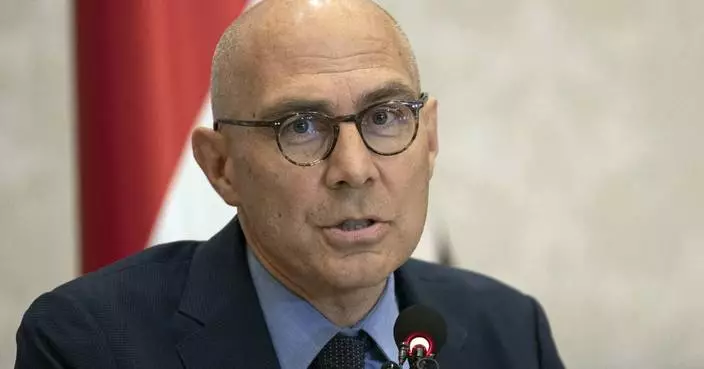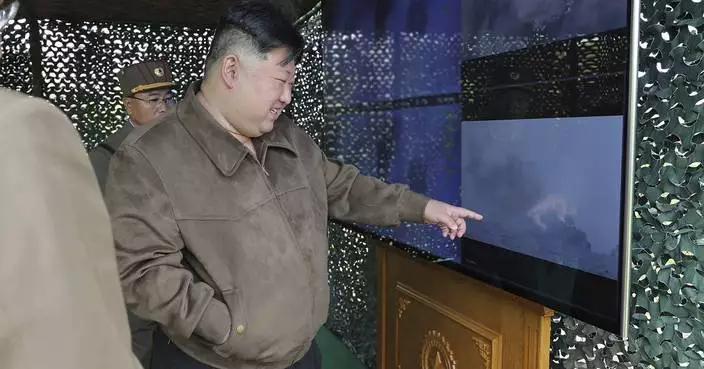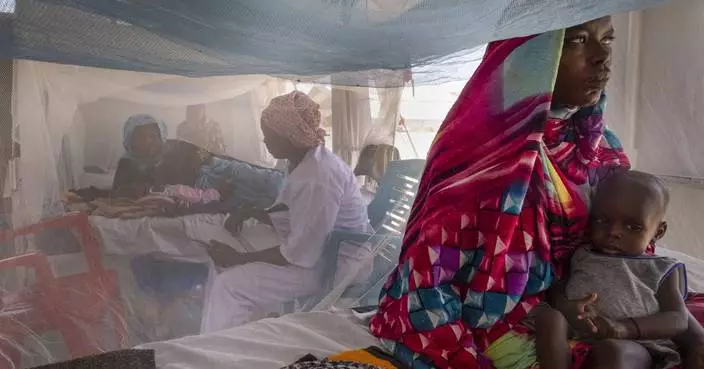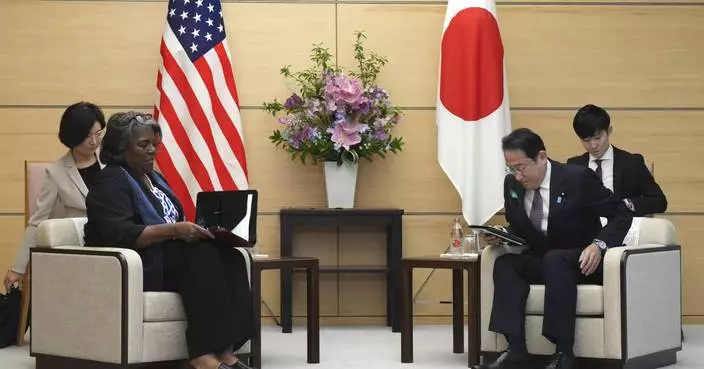Banned charcoal exports from Somalia are thriving, generating millions of dollars a year for al-Qaida-linked al-Shabab extremists — and often passing through Iran to have their origins obscured, according to U.N. sanctions monitors.
Six years after the U.N. Security Council prohibited exports of prized Somali charcoal to try to choke off a money stream to al-Shabab, an estimated three million bags of the commodity are making their way out of the Horn of Africa country each year, the monitors say in excerpts of a yet-unpublished report seen by The Associated Press.
The main destinations are ports in Iran, where the charcoal — already falsely labeled as coming from Comoros, Ghana or Ivory Coast — is transferred from blue-green bags into white bags labeled "product of Iran," the report says. The bags are then loaded on Iranian-flagged ships and sent to Dubai, United Arab Emirates, with certificates claiming Iran as the charcoal's country of origin.
Iran "has been a weak link in implementation" of the charcoal ban, the monitors said, adding that Tehran largely didn't cooperate with their investigation.
There was no immediate response to inquiries made Friday evening with the U.N. missions of Iran and the UAE. The monitors credited the UAE with seizing some Somali charcoal but said the Persian Gulf country didn't "substantively engage" with their questions about the shipments allegedly made through Iran.
There was no immediate response on Saturday from Somali officials.
Made from acacia trees, charcoal from Somalia is cherished in Gulf nations for the sweet aroma it lends to grilled meats and to tobacco burned in waterpipes.
It's also highly valued by the Somalia-based al-Shabab, which effectively taxes the charcoal at checkpoints, according to the U.N. monitors tasked with assessing compliance with sanctions on Somalia and Eritrea.
The monitors say the checkpoint payments yield at least $7.5 million a year for al-Shabab, which a year ago carried out the deadliest terror attack in sub-Saharan Africa's history. The October 2017 truck bombing killed at least 512 people in Somalia's capital, Mogadishu.
At a U.N.-sponsored summit in May on the illicit charcoal exports, Somali officials asked for international cooperation to stop them, saying they fuel insecurity by channeling money to extremists and worsen environmental degradation as trees are cut down in a country already vulnerable to drought, flood and famine.
"We need cooperation to implement the U.N. Security Council (sanctions) resolution and ensure the environmental, economic and human losses that happen because of illegal charcoal trade are curbed," Deputy Prime Minister Mahdi Mohamed Guled told the gathering.
The excerpts of the monitors' report seen by the AP don't specify what individuals or groups may be involved in the illicit charcoal trade, aside from al-Shabab's de facto tax collectors. The group controls parts of southern and central Somalia and continues to target high-profile areas of the capital with suicide bombings.
The report says some of the fake origin certificates for the exported charcoal are outright forgeries, made without any official involvement from the relevant nations. But others, such as the Iran certificates, are "evidently issued through official channels," the monitors said.
The monitors said other countries such as Ghana and Ivory Coast "have allowed charcoal traffickers to exploit weaknesses" in their systems for issuing such certificates and "bear some responsibility" for the patchy enforcement of sanctions.
Follow Africa news at https://twitter.com/AP_Africa
WASHINGTON (AP) — Lawyers for an American believed to be held by the Taliban for nearly two years are asking a United Nations human rights investigator to intervene, citing what they say is cruel and inhumane treatment.
Ryan Corbett was abducted Aug. 10, 2022, after returning to Afghanistan, where he and his family had been living at the time of the collapse of the U.S.-based government there a year earlier. He arrived on a valid 12-month visa to pay and train staff as part of a business venture he led aimed at promoting Afghanistan's private sector through consulting services and lending.
Corbett has since been shuttled between multiple prisons, though his lawyers say he has not been seen since last December by anyone other than the people with whom he was detained.
In a petition sent Thursday, lawyers for Corbett say that he's been threatened with physical violence and torture and has been malnourished and deprived of medical care. He's been held in solitary confinement, including in a basement cell with almost no sunlight and exercise, and his physical and mental health have significantly deteriorated, the lawyers say.
Corbett has been able to speak with his family by phone five times since his arrest, including last month. His family has not been able to see him — his only visits have been two check-ins from a third-party government — and their characterizations of his mistreatment are based on accounts from recently released prisoners who were with him and his openly dispirited tone in conversations.
“During Mr. Corbett’s most recent call with his wife and children, Mr. Corbett indicated that the mental torture and anguish have caused him to lose all hope,” said the petition, signed by the Corbett family attorneys, Ryan Fayhee and Kate Gibson.
The petition is addressed to Alice Edwards, an independent human rights investigator and the special rapporteur for torture in the Office of the High Commissioner for Human Rights at the U.N. It asks Edwards, who was appointed by the U.N. Human Rights Council, to “urgently reach out to the Taliban to secure Mr. Corbett’s immediate release and freedom from torture, as guaranteed by international law.”
"This situation is just dragging on, and I’m increasingly concerned and taking steps that I hope will make a difference and help the situation — just increasingly concerned and panicking about Ryan’s deteriorating health and physical and mental health," Corbett's wife, Anna, said in an interview. “And that was leading me to take this next step.”
The U.S. government is separately working to get Corbett home and has designated him as wrongfully detained. A State Department spokesman told reporters last month that officials had continually pressed for Corbett's release and were “using every lever we can to try to bring Ryan and these other wrongfully detained Americans home from Afghanistan."
A spokesperson for the Interior Ministry in Afghanistan said this week that it had no knowledge of Corbett's case.
Corbett, of Dansville, New York, first visited Afghanistan in 2006 and relocated there with his family in 2010, supervising several non-governmental organizations.
The family was forced to leave Afghanistan in August 2021 when the Taliban captured Kabul, but he returned the following January so that he could renew his business visa. Given the instability on the ground, the family discussed the trip and “we were all pretty nervous,” Corbett's wife said.
But after that first uneventful trip, he returned to the country in August 2022 to train and pay his staff and resume a business venture that involved consulting services, microfinance lending and evaluating international development projects.
While on a trip to the northern Jawzjan province, Corbett and a Western colleague were confronted by armed members of the Taliban and were taken first to a police station and later to an underground prison.
Anna Corbett said that when she learned her husband had been taken to a police station, she got “really scared” but that he was optimistic the situation would be quickly resolved.
That, however, did not happen, and Anna Corbett, who has three teenage children and makes regular trips to Washington, said she's trying to advocate as forcefully as she can while not letting “anxiety take over.”
“I feel like it’s the uncertainty of all of it that just is so difficult because you just don’t know what’s going to come at you — what call, what news," she said. "And I’m worried about Ryan and the effect of the trauma on him and then also on my kids, just what they’re experiencing. I've tried to protect them the best I could, but this is so difficult.”
Associated Press writer Riazat Butt in Kabul, Afghanistan, contributed to this report.
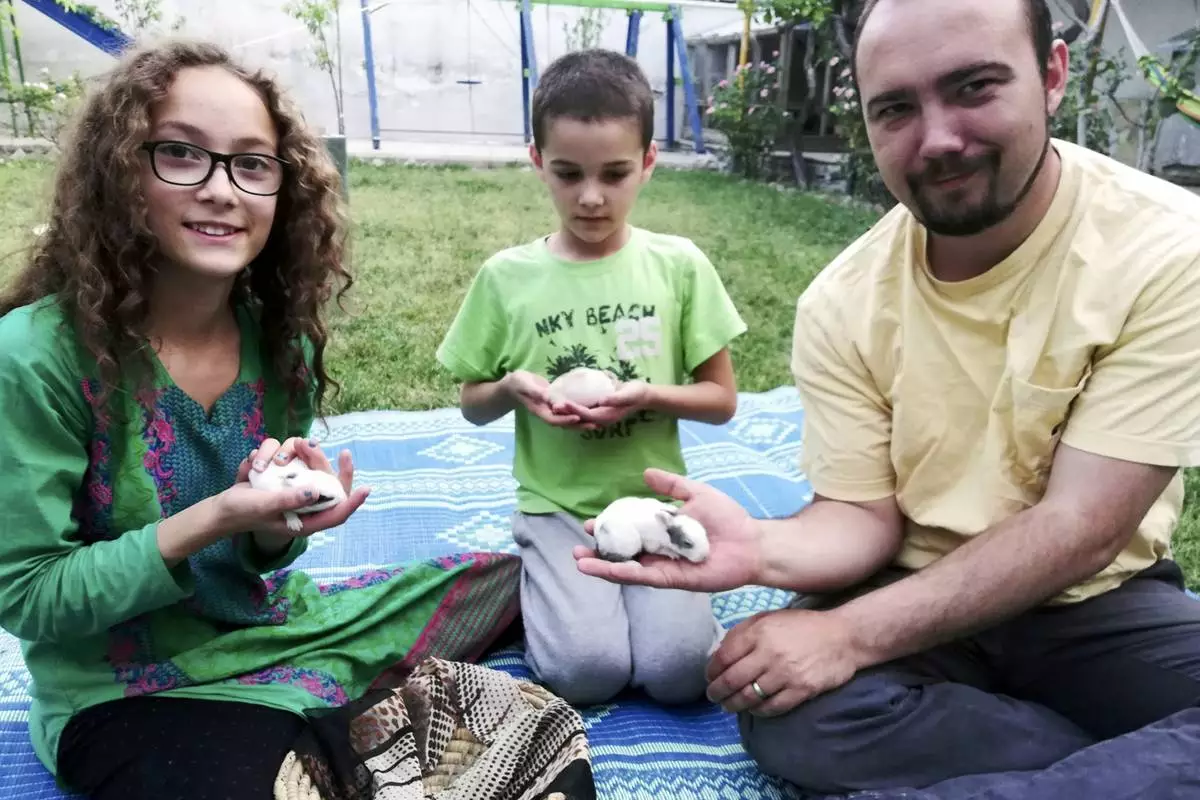
This family photo shows Ryan Corbett holding rabbits with his daughter Miriam and son Caleb in Kabul, Afghanistan in 2020. Lawyers for Corbett, believed held by the Taliban for nearly two years, are asking a United Nations human rights investigator to intervene, citing what they say is cruel and inhumane treatment. Corbett was abducted on August 10, 2022 after returning to Afghanistan, where he and his family had been living at the time of the collapse of the U.S.-based government there one year earlier, on a valid 12-month business visa to pay and train staff. (AP Photo/Anna Corbett)





